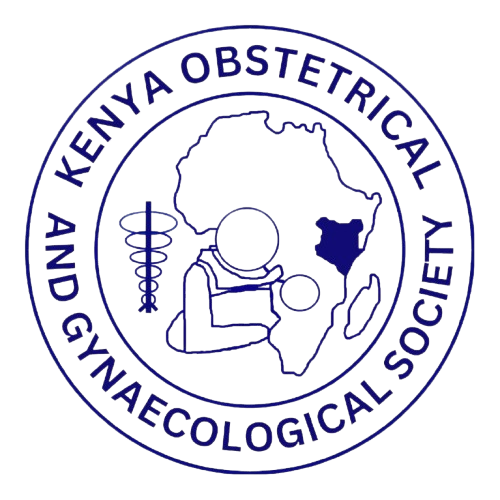The Kenya Obstetrical and Gynaecological Society (KOGS) is a professional society for Obstetricians and Gynaecologist in the country with an aim to advance excellence in sexual reproductive health for all.
In regards to the recent pandemic that has affected our country the following is our professional statement that:
Cases of COVID-19 infection have now been reported in Kenya. KOGS is monitoring the evolving circumstances very carefully and will be giving expert opinions as the situation unfolds.
Travel
Travel history is always an essential component of medical history taking, therefore obstetrician–gynecologists should be vigilant in obtaining a detailed travel history as well as a history of exposure to people with symptoms of COVID-19 for all patients, including pregnant women presenting with fever or acute respiratory illness. Travel advisories or restrictions have been imposed in the country thus Ob-Gyns should be on the lookout for guidance on travel restrictions.
Pregnant Women
At this time, very little is known about COVID-19, particularly related to its effect on pregnant women and infants, and there currently are no recommendations specific to pregnant women regarding the evaluation or management of COVID-19.
Currently available data on COVID-19 does not indicate that pregnant women are at increased risk. However, pregnant women are known to be at greater risk of severe morbidity and mortality from other respiratory infections such as influenza and SARS-CoV. As such, pregnant women should be considered an at-risk population for COVID-19. Adverse infant outcomes (e.g. preterm birth) have been reported among infants born to mothers positive for COVID-19 during pregnancy.
However, this information is based on limited data and it is not clear that these outcomes were related to maternal infection. Currently it is unclear if COVID-19 can cross the placenta to the fetus. In limited recent case series of infants born to mothers infected with COVID-19 published in the peer-reviewed literature, none of the infants have tested positive for COVID-19
Community Mitigation Efforts
Community mitigation efforts to control the spread of COVID-19 are being implemented across the country. While these efforts are important, Ob-Gyns should be aware of the unintended impact they may have, including limiting access to routine antenatal care. They should ensure that patients with certain high-risk conditions are provided necessary prenatal care and testing when needed. They should also consider creating a plan to address the possibility of a decreased health care workforce, potential shortage of personal protective equipment, limited isolation rooms.
Infection Prevention and Control in Inpatient Obstetric Care Settings.
This should also apply to health care facilities providing obstetric care for pregnant patients with confirmed COVID-19 or pregnant persons suspected to have COVID-19 in inpatient settings including obstetrical triage, labor and delivery, recovery and inpatient postpartum settings.
To reduce the risk of transmission of the virus that causes COVID-19 from the mother to the newborn, facilities should consider temporarily separating (e.g. separate rooms) the mother who has confirmed COVID-19 or is under investigation from her baby until the mother’s transmission-based precautions are discontinued.
Breastfeeding
Currently, the primary concern is not whether the virus can be transmitted through breast milk, but rather whether an infected mother can transmit the virus through respiratory droplets during the period of breastfeeding. A mother with confirmed COVID-19 or who is symptomatic should take all possible precautions to avoid spreading the virus to her infant, including washing her hands before touching the infant and wearing a face mask, if possible, while breastfeeding.
If expressing breast milk with a manual or electric breast pump, the mother should wash her hands before touching any pump or bottle parts and follow recommendations for proper pump cleaning after each use. If possible, consider having someone who is well to feed the expressed breast milk to the infant.
Elective surgeries
In a situation where COVID-19 has caused stress on the health care system, it may be advantageous to identify and modify surgical scheduling, including for procedures that are medically indicated, when a patient’s health and safety would not be harmed by such delay. Obstetric and gynecologic procedures for which a delay will negatively affect patient health and safety should not be delayed. This includes gynecologic procedures and procedures related to pregnancy for which delay would harm the patient health.
In conclusion, KOGS also wishes to reiterate that no vaccinations are currently available for COVID-19. We also would like to emphasize on the following preventive measures:
- Regular and frequent hand washing with soap and clean water
- Use of alcohol-based hand sanitizers after patient contact
- Avoid touching face unnecessarily
- Maintain social distancing
- Access to testing if exposed and appropriate supportive measures for the sick




